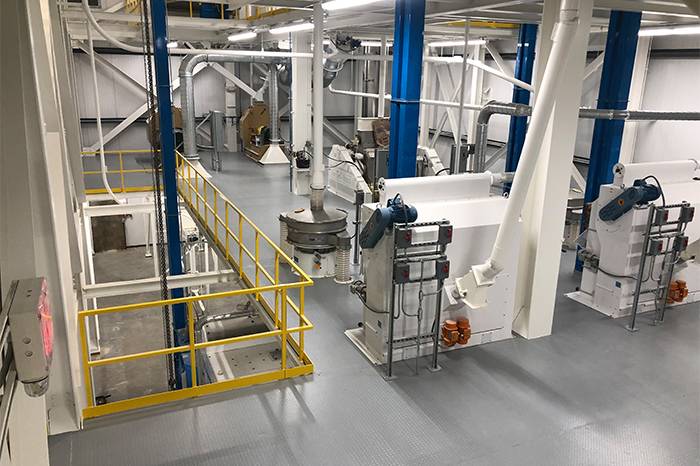To better their farms, dairy farmers frequently collaborate with outside organizations, particularly local environmental organizations. Dairy farmers can sustain their communities for future generations by working together to maintain rivers, wildlife, native crops and other projects. Proper care and quality of dairy farming help increase the number of dairy products, and for making quality khoya, khoya machines are available.
What is the definition of sustainable dairy farms?
Sustainable dairy farms are agricultural endeavors that strive to generate dairy products while reducing adverse environmental effects, advancing animal welfare, bolstering nearby communities, and preserving long-term financial stability. These farms prioritize animal welfare, social responsibility, environmental stewardship, and economic efficiency.
What are some sustainable dairy farming practices?
A dairy farm can become more sustainable by implementing measures that enhance animal welfare, lessen their adverse effects on the environment, and guarantee their financial stability. Here are a few methods to make this happen:
- Pasture-Based Grazing: Permit cows to graze on pasture. Rotational grazing can lessen soil erosion, increase soil health, and reduce fertilizer usage.
- Feed Management: Reduce dependency on non-sustainable feed sources, such as corn and soy, and maximize feed composition to minimize waste. When it is feasible, use organic and locally obtained feed.
- Water Conservation: To reduce water use in farm operations, implement water-saving technology, including drip irrigation, rainwater gathering, and effective watering systems.
- Energy Efficiency: To lessen dependency on non-renewable energy sources, install energy-efficient machinery, solar panels, and LED lights, among other systems and equipment.
- Manure management: To properly handle manure, use composting or anaerobic digestion systems. This can provide nutrient-rich compost for soil fertility and methane for energy.
- Preserving natural ecosystems: It is beneficial for protecting farms and is essential for biodiversity conservation. This can involve keeping native vegetation intact, building ponds and planting hedgerows.
- Use Integrated Pest Management Techniques: Reducing the amount of pesticides and herbicides you use is applicable. This includes managing pests and illnesses through biological controls, crop rotation, and habitat management.
- Genetic Selection: To lessen the environmental impact of dairy production, breed for characteristics including heat tolerance, disease resistance, and feed efficiency.
- Reduce Waste: Milk can be sold in recyclable or returnable containers to help reduce packaging waste. Put plans in place to lower the farm’s overall waste production.
- Continuous Improvement: Monitor, benchmark, and implement new technology and best practices to evaluate and enhance sustainable practices continuously.
- Community Involvement: Work with the local community to develop partnerships with other stakeholders, educate customers about the advantages of sustainable dairy production, and support sustainable agriculture practices.
- Standards and Certifications: To show your dedication to sustainability and animal welfare, get certifications
Benefits of sustainability of dairy farms.
Sustainable dairy has advantages for the environment, society, and economy. Among these advantages are:
- Environmental Conservation: By lowering greenhouse gas emissions, conserving energy and water, maintaining soil health, and safeguarding biodiversity, sustainable dairy farming methods help reduce their adverse environmental effects.
- Animal Welfare: Ethical animal husbandry techniques, cozy living quarters, pasture access, and adequate dietary and medical treatment are all ways that sustainable dairy farms put the welfare of their animals first.
- Economic viability: By lowering input costs, raising production and improving efficiency, implementing sustainable practices can strengthen the financial stability of dairy farms.
- Community Engagement: By encouraging social responsibility, bolstering local economies, and creating job opportunities, sustainable dairy farming cultivates good relationships with the communities in which it operates.
- Food Security and Quality: By guaranteeing that consumers may obtain wholesome dairy products, sustainable dairy production helps to ensure food security.
Dairy farming employs cutting-edge technologies these days. Contact NK Dairy Equipment if you’re seeking dairy equipment in Ludhiana.




